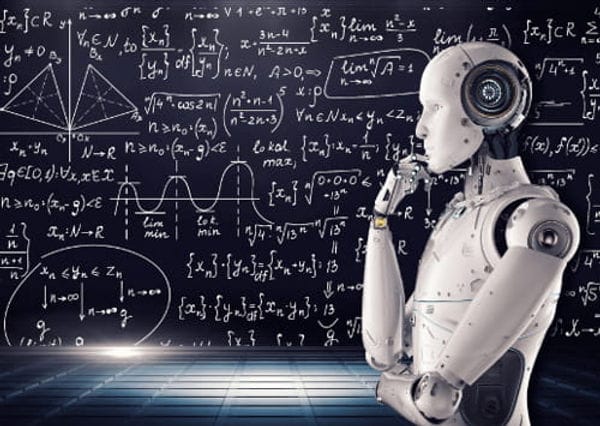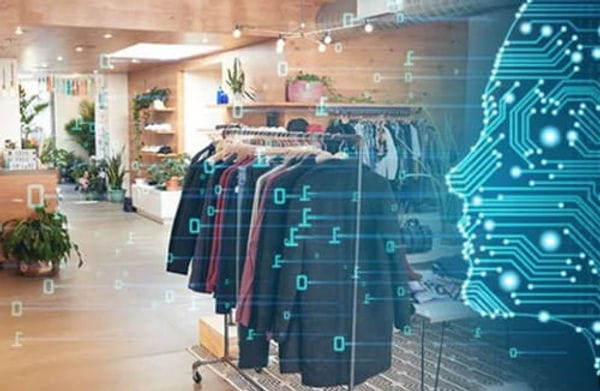Artificial Intelligence has revolutionized several sectors in the past decade, and the Retail sector has not been an exception. There are many applications of Artificial Intelligence in the Retail sector that we will be discussing in our content.
With increasing competition and growing consumer demand, retailers are seeking ways to enhance the customer experience, increase efficiency, and reduce costs. Artificial Intelligence offers solutions to these challenges and presents an opportunity for the Retail sector.

Although e-commerce is advancing with technology, physical retail stores cannot be replaced, not even by the most popular e-commerce brands. People still want to see and try out products in person before making a purchase. Retail stores are a good place to promote the brand and offer in-person deals and discounts.
One of the reports published by Adigital reveals that in Spain, only 5% to 7% of the Retail sector is utilizing Artificial Intelligence to create value. This low percentage is due to a lack of knowledge about AI. Hence, few companies are harnessing the potential of this system.
However, they maintain that between 2029 and 2030, all small businesses will have access to automated systems that will function like human beings.
What is artificial intelligence?
Artificial intelligence, or AI, is the intelligence exhibited by machines. Specifically, AI is the field of study that designs computer systems capable of performing tasks that normally require human intelligence.
Some of the capabilities associated with Artificial Intelligence are:
Machine learning: Systems gain knowledge and learn data models without being neatly programmed.
- Machine learning: Systems acquire knowledge and learn data patterns without being explicitly programmed.
- Pattern recognition: Systems identify complex patterns in large datasets.
- Natural language processing: Systems understand and generate human language.
- Reasoning: Systems make inferences and decisions in complex environments.
- Solving complex problems: Systems solve complex problems that require a wide range of knowledge and cognitive abilities.
- Perception: Systems acquire, process, analyze, and understand real-world information from sounds, images, and other sensory inputs.

AI has been successfully applied in areas such as medical diagnosis, transportation, education, agriculture, gaming, robotics, and many other fields. It is a highly active and constantly developing area of study that cannot be overlooked in the Retail sector.
Applications of Artificial Intelligence
Globally, the artificial intelligence market has seen a massive increase in startups. These key players are enabling companies to offer AI-driven measures for rapid industry growth.
The retail sector has not lagged behind. It has been implementing AI-based systems to serve various functions. In this section, discover the applications of Artificial Intelligence in the Retail sector.
Personalization of the customer experience
Artificial Intelligence can help retailers personalize the customer experience through the analysis of behavioral data and preferences. Retailers can use this information to provide personalized recommendations and specific promotions for each customer. This could include product recommendations, content recommendations, or route recommendations within their app or website.
Virtual fitting rooms
A new trend and way of shopping, especially in times of COVID, has greatly propelled this technology. These virtual fitting rooms help customers save time and money on travel expenses and, from the comfort of their homes, customers find perfect outfits with all the elements perfectly coordinated in just minutes.

They work by having the customer’s image in the stores and can select the clothing that should be tried on, giving one a realistic image of the outfit without even physically trying it on. This makes the whole process really convenient and effective without too much clutter in the store.
Pricing regulation strategies
Another application of Artificial Intelligence in the Retail sector is setting prices for their products more competitively to thrive in the market. It visualizes the likely outcomes of multiple pricing strategies.
It quickly reads the company’s previous transaction data and the market for the actual cost of the product, promotional activities, and sales figures in the market and keeps its pair to generate within the same profit threshold with greater efficiency.
Companies can present the best offers and attract new customers, thus creating a new customer base at the same time.

Inventory management optimization
AI can assist inventory management by predicting demand and identifying purchasing patterns. Retailers can use this information to ensure they have enough inventory to meet demand and reduce excess inventory and associated costs.
Loss prevention
AI can contribute to loss prevention by identifying fraud patterns and detecting theft. Retailers can use this information to take proactive measures to prevent fraud and theft.
Process automation
AI can automate customer service and order processing processes to improve efficiency and reduce costs. Retailers can also use chatbots to answer customer questions and provide real-time assistance.
Artificial intelligence tools like chatbots, voice assistants, and agents can handle simple personalized customer service requests according to each customer’s specific needs, profile information, service history, and more. Agents can also leverage AI insights to enhance personalized support.
In summary, Artificial Intelligence (AI) offers a wealth of benefits to the Retail sector, from personalizing the customer experience to automating processes, allowing retailers to improve efficiency, reduce costs, and provide a more appealing and personalized shopping experience for customers.


